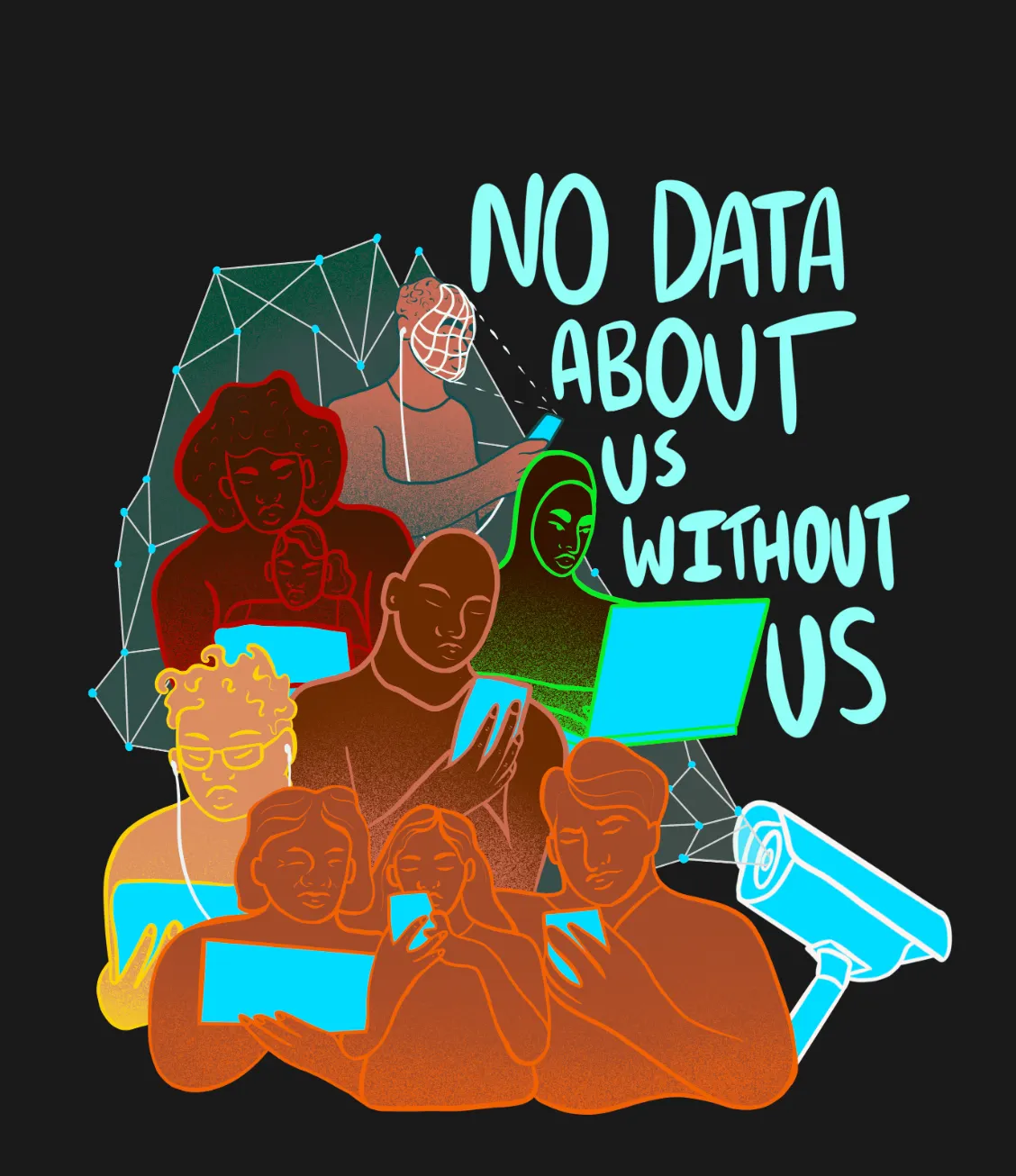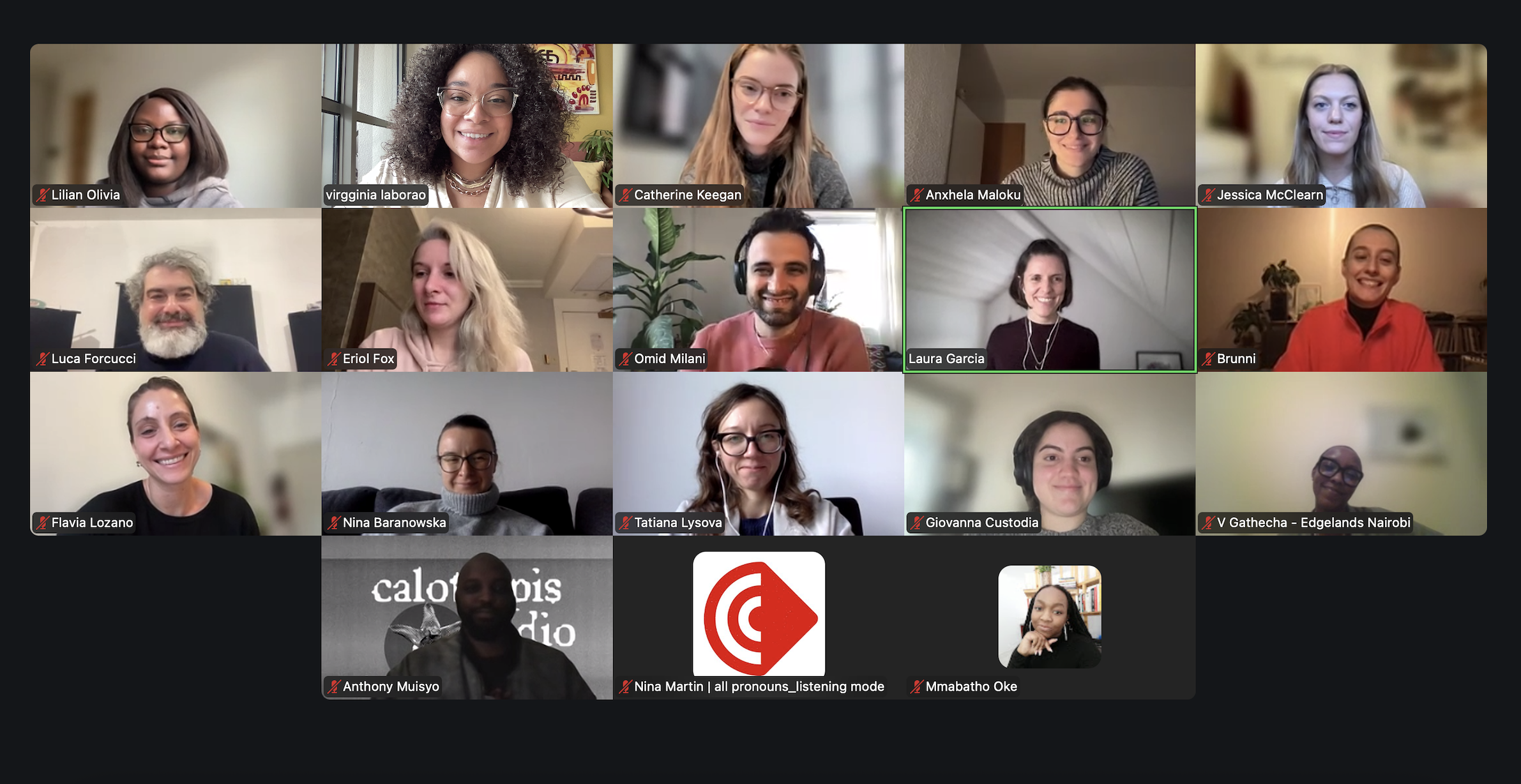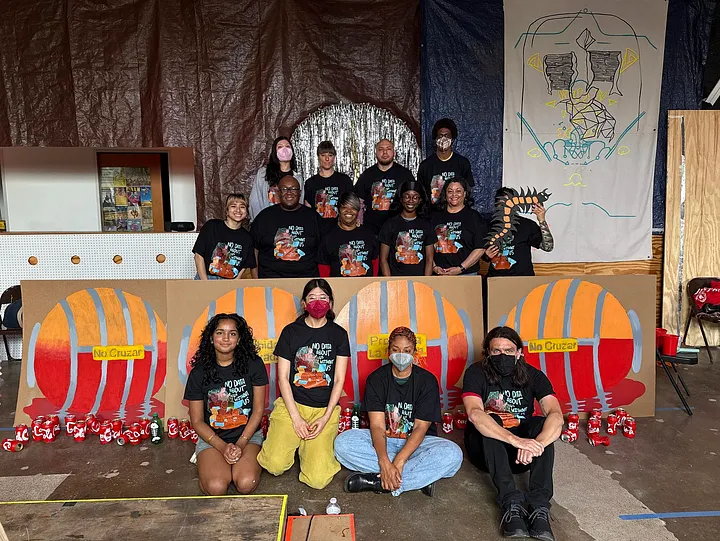Boursiers Edgelands 2022-2023
L'Institut Edgelands est heureux de présenter ses nouveaux boursiers de l'année universitaire 2022-2023.

Photo de Flavia Lozano
À propos de la bourse
L'Institut Edgelands est heureux d'annoncer les boursiers entrants pour notre programme de bourses inaugural pour l'année académique 2022-2023. Le programme comprend une cohorte exceptionnelle d'universitaires et de professionnels internationaux qui se consacrent à nous aider à mieux comprendre comment la numérisation croissante de la sécurité urbaine a un impact sur le tissu social d'une ville. Edgelands est également ravi de travailler avec les boursiers qui utiliseront la narration visuelle pour mettre en lumière les façons dont les technologies numériques changent les villes.
A propos des boursiers et de leurs projets
Les boursiers viennent notamment des États-Unis, de Colombie, des Pays-Bas, d'Afrique du Sud et de Turquie. Le groupe comprend des scientifiques des données, des professeurs, des doctorants, des stratèges en conception, des associés de recherche, un architecte, un avocat et, enfin, un entrepreneur. Ils commenceront leur bourse à distance, mais nous espérons qu'à terme, ils pourront rencontrer leurs collègues et les autres membres de l'équipe Edgelands en personne.
Emre Altindag, Caricaturiste, peintre, illustrateur.

Dans ce projet, Emre se penchera sur la question de savoir comment les applications numériques utilisées dans la conception des villes intelligentes affecteront la vie privée des gens à travers l'histoire d'un sans-abri. Il aimerait créer, grâce à la bourse de l'Institut Edgelands, un roman graphique sans paroles de 50 à 60 pages, entièrement coloré et illustré, inspiré par la question suivante : "Comment vivre au centre d'une méga-surveillance et faire partie d'un système de surveillance détaillé ? Comment le fait de vivre au centre d'une méga surveillance et de faire partie de données détaillées sur la ville affecte-t-il la vie d'une personne ?
Burcu Baykurt, Professeur adjoint d'études médiatiques à l'université du Massachusetts Amherst et associé à la faculté du Berkman Klein Center for Internet & Society de l'université de Harvard.

Burcu effectuera des recherches sur les startups technologiques aux États-Unis qui se spécialisent dans l'aide aux gouvernements municipaux pour l'adoption de technologies de surveillance et d'analyse de données dans divers domaines, des services publics à la gestion du trafic en passant par la sécurité publique. Cette recherche étudie comment les techniques culturelles du capitalisme de données exploitent les inefficacités bureaucratiques et de quelle manière les espaces civiques de la ville dite intelligente sont incorporés dans le techno-capitalisme américain.
Diana Paola Rojas Bermeo, Professeur et chercheur à l'université EAFIT de l'université d'Antioquia. Spécialisée en politique publique au secrétariat à la sécurité de la mairie de Medellín, en Colombie.
Le programme de recherche de Diana en matière de sécurité est axé sur les questions liées à la planification de la sécurité, en particulier du point de vue des politiques publiques et des plans globaux pour la sécurité des citoyens. Son projet vise à identifier les futurs processus et besoins de recherche en termes d'agendas de sécurité dans ses villes de prédilection.
Betsy Campbell, Professeur adjoint au collège d'éducation de l'université de Penn State et directrice de The Cape at Penn State.
Mme Campbell coordonnera un projet de recherche et d'art public. Elle mènera une ethnographie visuelle qui aboutira à un article scientifique et à une œuvre de danse publique (plus un guide de discussion) sur la sécurité numérisée dans les villes contemporaines. Elle s'intéresse à la compréhension incarnée de la numérisation de la sécurité - les impressions que ces changements font sur nos vies physiques et les façons dont la compréhension incarnée peut suggérer de nouvelles façons de parler des expériences individuelles et communautaires.
Maggie Engler, technologue et chercheuse spécialisée dans la sécurité, la confiance et la sûreté. Elle développe actuellement des systèmes d'apprentissage automatique pour l'intégrité des plateformes chez Twitter et enseigne la science des données centrée sur l'humain à l'Université du Texas.

Le projet de recherche de Maggie vise à vérifier quelques hypothèses de base. Les rapports de la communauté et de la police sont-ils plus fréquents dans les mêmes zones ou dans des zones différentes ? Combien de signalements aboutissent réellement à une intervention des forces de l'ordre ? L'utilisation de ces applications est-elle en corrélation avec le fait que les gens se sentent plus ou moins en sécurité ?
Elle aimerait examiner systématiquement la concordance entre les rapports des médias sociaux communautaires, les rapports de criminalité établis par la ville d'Austin et les incidents confirmés. Elle pourrait ensuite comparer le volume de bavardage sur ces applications communautaires au volume relatif de la criminalité par rapport aux informations de la police. Maggie souhaite également mener des enquêtes dans les codes ZIP analysés afin de déterminer la perception qu'ont les résidents de la sécurité publique et de la protection de la vie privée.

Samson Faboye, Architecte, musicien et urbaniste, spécialisé dans la gouvernance et le développement international.
L'étude de M. Samson portera sur la numérisation de l'architecture de la sécurité urbaine à Johannesburg et à Lagos. Ces deux villes sont les plus peuplées de leur pays et sont confrontées à des problèmes de criminalité urbaine exponentielle. Il utilisera l'interface de programmation d'applications pour surveiller les comptes des agences de sécurité sur les médias sociaux (Twitter) et les hashtags sur la sécurité sur les médias sociaux. Il réalisera également des entretiens avec des acteurs de la sécurité (résidents et experts) afin de disposer d'un contenu de blog régulier et d'enrichir le contexte de compréhension de sa (ses) publication(s).
Alexandra Merceron, Chargée de cours à l'université de Columbia en communication stratégique et vice-présidente exécutive de Rubenstein en sciences de la communication et perspectives.
Alexandra s'intéresse à l'étude des connaissances et des perceptions des citoyens en matière de cybersécurité personnelle. Jusqu'à présent, elle a constaté que la perception de la cybersécurité des plateformes numériques, de la détection des menaces et de la capacité à identifier les fausses informations est influencée par l'effet de la troisième personne, ce qui, en fin de compte, a une incidence sur la confiance dans les plateformes numériques. L'étude de ce phénomène et de l'impact de la confiance dans les plateformes numériques sur leur adoption et leur utilisation a de vastes implications pour les gouvernements, les médias, les institutions financières, les soins de santé, les spécialistes du marketing et d'autres entités qui dépendent de plus en plus des plateformes numériques.
Dario Rodighiero, Professeur assistant en sciences et études technologiques à l'université de Gronigen. Il est affilié à l'université de Harvard à metaLAB et au Berkman Klein Center for Internet & Society.

Dario cherche à analyser des articles de journaux concernant la surveillance numérique afin de créer une carte visuelle des acteurs et des organisations qui font partie de ce débat public. La carte affichera une grande quantité de données, ce qui permettra au spectateur d'avoir un point de vue distancié sur les liens qui existent entre ces acteurs et sur ceux qui sont les "acteurs principaux". L'idée finale est d'utiliser cette carte pour un événement public ou une discussion interne afin de recueillir différentes interprétations potentielles. Les résultats de cette conversation collective seront publiés sous la forme d'un document de conférence ou d'un article de journal, ainsi que d'une version en ligne de la carte.
Sofia Rinvil, Personnel législatif au Sénat de New York

Sofia mènera des recherches sur l'intersection de la numérisation et de la gouvernance urbaine. Elle considère la ville comme le reflet de son infrastructure de données, les smartphones des citoyens devenant leur permis de conduire mobile et leur carte d'identité numérique, ce qui accélère et simplifie l'accès à la ville et aux services publics locaux.
Sophia Sennett, Experte en adaptation climatique et conceptrice de l'environnement.
Sophia est une conceptrice de l'environnement et une experte en adaptation climatique. Au sein de l'Institut Edgelands, elle explorera les contrats sociaux de sécurité urbaine à travers le prisme du changement climatique. Elle se concentrera sur la coévolution entre les technologies émergentes, l'environnement bâti et l'accessibilité de la collecte/projection de données.
Sophia a occupé des postes au sein du gouvernement fédéral, dans le secteur privé, dans des start-ups en phase de démarrage et dans le monde universitaire. Sophia est architecte paysagiste diplômée de la Harvard Graduate School of Design et de la Duke University. Elle est basée à Washington, DC, et travaille dans le monde entier pour l'empreinte immobilière du Département d'État américain.
_____________________________________________________
À propos de l'Institut Edgelands
L'Institut Edgelands est une organisation multidisciplinaire qui utilise la recherche universitaire, les données et l'art pour explorer la façon dont la numérisation de la sécurité urbaine modifie le contrat social urbain - les règles souvent invisibles qui régissent nos villes. Nous créons des espaces pop-up qui amènent les citoyens, les décideurs politiques, les universitaires et d'autres parties prenantes à dialoguer sur la façon dont les outils numériques sont utilisés par les gouvernements des villes et transforment le tissu social urbain.
L'Institut Edgelands est un mouvement mondial. Nous nous installons temporairement dans des villes sélectionnées à travers le monde qui ont fait des progrès novateurs dans leur utilisation des technologies numériques, en particulier dans leur application à la sécurité. Notre première étape est Medellín, en Colombie, où nous engageons la jeunesse locale dans la recherche et l'activisme qui se concentre sur la façon dont les dirigeants de la ville utilisent les outils de surveillance pour lutter contre la criminalité dans la ville.



